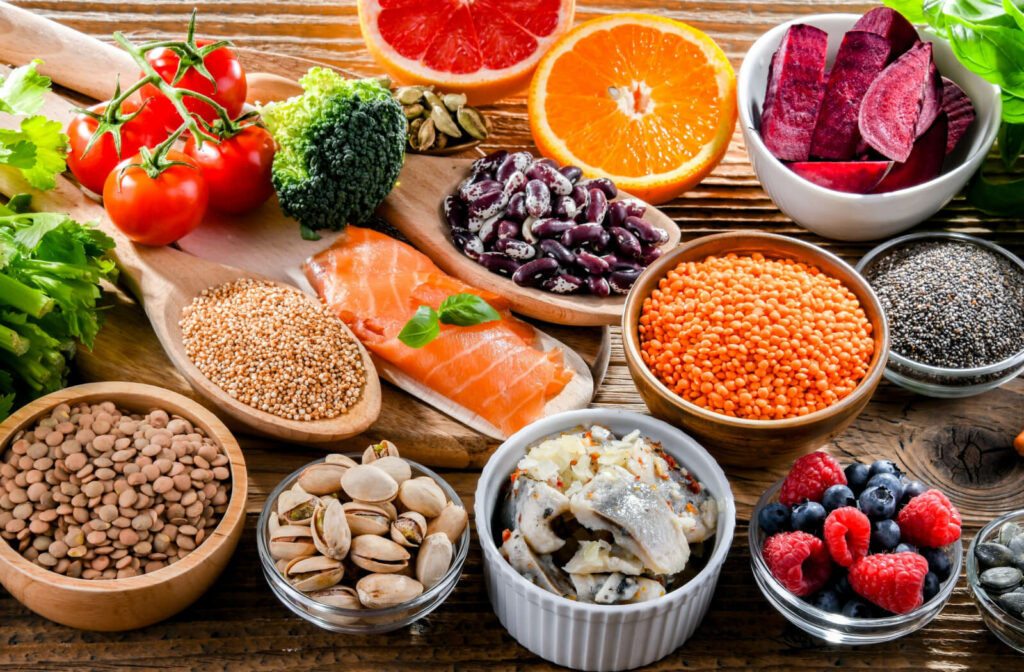Memory is a delicate and intricate aspect of our cognitive function, influenced by various factors, including diet. While we often focus on foods that enhance memory, it’s equally important to be aware of those that can impair it.
In our fast-paced lives, where processed and convenience foods often find their way onto our plates, it’s crucial to understand the impact of food on our mental acuity.
The 5 worst foods for memory include:
- Trans fats
- High-sugar foods
- Processed foods
- Alcohol
- Highly-processed and refined carbohydrates
How Does Memory Change with Age?
We’ve all experienced a forgetful moment, like forgetting where we parked our car or leaving the house without our phone. But what’s normal age-related memory loss, and what isn’t?
Normal-age-related memory loss can look like:
- Making the occasional bad decision.
- Forgetting a monthly payment.
- Forgetting the day of the week and remembering it later.
- Using the wrong word sometimes.
- Occasionally misplacing things.
Memory loss associated with dementia and Alzheimer’s looks much different. It may be:
- Often making poor judgments and bad decisions.
- Having problems taking care of monthly bills.
- Losing track of the date or time of the year.
- Trouble having a conversation.
- Often losing things and being unable to find them.
What are the 5 Worst Foods for Memory?
Memory function may be related to the foods you eat. But foods that compromise gut bacteria can also trigger metabolic processors and brain inflammation that impacts memory. And certain foods are worse for this than others.
Fried Foods
You can find trans fats in many processed and fried foods. Studies have linked fried foods to lower memory scores and depression. These fats damage blood vessels and cause inflammation, affecting the blood supply to the brain.
High-Sugar Foods
While a sweet treat can provide a quick energy boost, consistently consuming high-sugar foods can lead to excess glucose in the brain and affect the part of the brain that controls memory. Avoid imbibing in too many sugary drinks, sweets, and baked goods.
Processed Foods
Packed with artificial additives, preservatives, and high salt levels, processed foods might be convenient but often lack the nutrients necessary for optimal brain function. A diet rich in processed foods can shorten the caps or telomeres on your DNA; long telomeres are essential for healthy cellular aging.
One study found that people who consume high amounts of processed foods are more likely to experience mild depression than people who consume less.
Alcohol
Excessive alcohol consumption can have a detrimental effect on memory. One study showed that people who drank more than 14 drinks per week had a higher risk of dementia than people who drank in moderation.
Highly-Processed & Refined Carbohydrates
Foods like bread, pasta, and anything made from refined flour might not taste sweet, but they can cause a rapid spike in blood sugar levels since they’re processed the same as sugar. Refined carbohydrates can negatively impact cognitive function and increase your risk of cognitive impairment, such as depression.

5 Foods That Can Boost Memory
When you’re mindful of your food choices and choose a balanced, nutrient-rich diet, it can benefit your overall health and promote cognitive function and memory. Several foods make up a brain-healthy diet.
Fruits & Vegetables
Fruits and vegetables are rich in antioxidants and anti-inflammatory compounds that help reduce inflammation in the brain. Examples of fruits and vegetables that contain brain-healthy nutrients include:
- Berries
- Grapes
- Watermelon
- Avocado
- Beets
- Dark leafy greens
Fatty Fish
Fatty fish like salmon, mackerel, and sardines are high in omega-3 fatty acids, which can improve memory. Non-fish sources of omega-3s include flaxseeds, avocados, and walnuts. You can also speak to your doctor about taking omega-3 supplements.
Whole Grains
Complex carbohydrates help provide a steady dose of glucose without leading to excess glucose in the brain. Complex carbohydrates include whole grains like cracked wheat, couscous, chickpeas, and oats, which have a low glycemic index.
Healthy Fats
You can replace trans and saturated fats in your diet with healthy fats. Examples of healthy monounsaturated fats include olive oil, which can help reduce bad or LDL cholesterol. Olive oil also contains protective antioxidant compounds.
Can Any Foods Cause Dementia?
Ee can’t say that certain foods will definitely cause dementia. While some foods are better for memory than others, there are some studies that show eating a diet that can reduce high blood pressure can reduce the risk of dementia. Overall, keeping a healthy well-balanced diet is recommended for long-term health and cognition.
Individualized Care for Loved Ones
What we eat can affect our brain health as we age. By avoiding fried, processed, and sugary foods and limiting alcohol, we can help support our brain health and memory.
If you’re looking for a community dedicated to supporting the cognitive health of residents through individualized levels of care, call Tylers Mill Senior Living or schedule a visit to see what our community offers in person.



